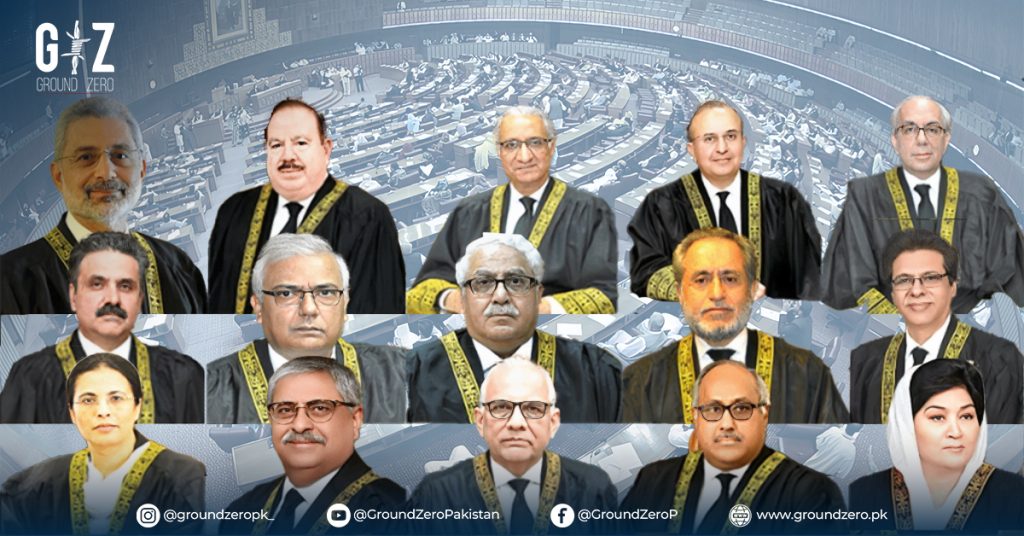Government Pushes Amendment for Judges’ Retirement Age Extension
Amid speculation and intense political discussions, Defence Minister Khawaja Asif confirmed that the government is set to introduce a constitutional amendment in the National Assembly tomorrow. This proposed amendment aims to extend the retirement age for judges of Pakistan’s superior courts. Asif, speaking informally with journalists on Friday, stated, “We have completed the number game in the lower house of parliament,” signaling confidence in the government’s legislative support. The amendment is expected to raise the retirement age for Supreme Court judges from 65 to 68 years and for high court judges from 62 to 65 years. For more updates, visit our Pakistan News section.
Plan for Amendment and Political Calculations
The government plans to introduce several judicial reforms through a “constitutional package.” This includes extending the retirement age for judges, a move that would require a two-thirds majority in both houses of parliament. According to Article 179 of the Constitution, a Supreme Court judge currently serves until the age of 65, while Article 195 states that a high court judge serves until 62. The proposed amendment has stirred debate, especially as the government claims to have secured the needed majority in the National Assembly, though it remains three votes short in the Senate. See Dawn’s coverage for more details.
Resistance from Political Allies
Despite the government’s confidence, there is resistance from coalition partners. Jamiat Ulema-e-Islam-Fazl (JUI-F) has directed its Senate members not to participate in any voting until further clarification from party leadership. Kamran Murtaza, JUI-F’s parliamentary leader, emphasized the lack of clarity surrounding the proposed amendment, urging restraint until an official decision is made by the party. This internal division could complicate the government’s plans to pass the amendment. More insights are available in Express Tribune’s report.
Judiciary’s Stance on the Proposed Changes
Meanwhile, speculation over a potential extension for Chief Justice Qazi Faez Isa has intensified. However, CJP Isa clarified that he would not support any “individual-specific” legislation. In a recent statement, his secretary confirmed that Justice Isa had already communicated to Law Minister Azam Nazeer Tarar that if the proposal aimed at fixing his tenure was indeed individual-specific, he would not accept it. This firm stance underscores the judiciary’s wariness of amendments perceived to be targeting specific judges. For context, check out The News International analysis.
Political Context and Future Moves
The government’s move comes at a critical time, with the 2024 general elections on the horizon. Fazlur Rehman of JUI-F was a key ally of PML-N and PPP in the opposition alliance that successfully ousted former Prime Minister Imran Khan in 2022. The evolving political dynamics and alliances could influence the outcome of the proposed amendment. The government’s ability to navigate these complexities will be crucial in determining whether the amendment passes.
Implications and Next Steps
If the government succeeds in passing the amendment, it could lead to a significant shift in the judiciary’s composition and influence. Observers are keenly watching the next steps, particularly how the government manages its political alliances and opposition resistance. Stay informed with our ongoing coverage in the Opinions section.


